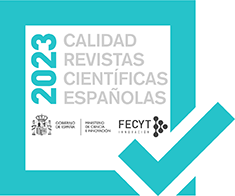Título: “Implicancias de las tecnologías informáticas en el ambiente y nuevas tendencias en el desarrollo de la informática verde como aporte al desarrollo sustentable”
Title: “Implications Of The Computer Technologies In The Environment And New Trends In The Development Of Green Computing As A Contribution To The Sustainable Development”
Fecha de recepción: 05/ 06/ 2015
Fecha de aceptación: 03/ 09/2015
Autora: Adriana Norma Martínez, Abogada y Magíster, Argentina
Autora: Adriana Margarita Porcelli, Abogada y Magíster, Argentina
Resumen:
La era industrial se caracterizó por la acumulación del capital y de la propiedad física, en cambio, en la nueva era post industrial o la tercera ola, como la denomina Alvin Toffler (1979), lo estimable son las formas intangibles de poder que se presentan en paquetes de información y en activos intelectuales, por lo que el carácter físico de la economía se reduce, desmaterializándose en un mundo hiperconectado e inteligente.
Durante la mayor parte de la historia de la humanidad el ritmo de las innovaciones fue lento, sin embargo, a partir de la Segunda Guerra Mundial, el uso y desarrollo de la tecnología ha experimentado un crecimiento exponencial
Las empresas, las organizaciones y los individuos que han sabido integrar, adaptar y utilizar estas nuevas tecnologías, se están beneficiando por lo que tales herramientas pueden lograr. La revolución tecnológica no debe ser en sí misma un fin sino un medio.
Los beneficios que trae aparejada la tecnología son muchos e importantes, pero no se puede negar que también surgen nuevos problemas ligados al desarrollo tecnológico y algunos de ellos con riesgos e impactos negativos para el hombre y el ambiente. La informática y la industria en general no han ahorrado esfuerzos para desarrollarse rápidamente, pero en la mayoría de los casos a costa del deterioro ambiental.
Ya en 1970 el Papa Pablo VI se refirió a la problemática ecológica en el discurso ante la Organización de las Naciones Unidas para la Alimentación y Agricultura, conocida por sus siglas en inglés FAO (Food and Agriculture Organization), destacando que los progresos científicos más sorprendentes y el crecimiento económico más prodigioso, si no van acompañados por un auténtico progreso social y moral, se vuelven contra el hombre . En igual sentido, el Papa Juan Pablo II (1979) en su primera Encíclica (Redemptor hominis) advirtió que las personas parecen percibir del ambiente natural sólo lo que sirven a los fines de un uso y consumo
Sin embargo, las Tecnologías de Información y Comunicación (TICS) pueden ser un aliado en la lucha contra el cambio climático a través de procesos denominados Tecnologías Verdes, que se inscriben en el concepto de economía verde como contexto del desarrollo sustentable, conforme al documento final de Río + 20. El presente trabajo detallará la incidencia de la informática en los diferentes ámbitos y describirá, en términos generales, cada uno de los métodos y productos informáticos ecológicos.
Abstract:
The industrial age was characterized by the accumulation of the capital and of the physical property, on the other hand, in the new age post industrial or the third wave like her Alvin Toffler names (1979) the estimable thing they are the intangible forms of power that they present in packages of information and in intellectual assets, for what the physical character of the economy diminishes, dematerialization in a hyperconnected and intelligent world.
During most of the history of the humanity, the pace of the innovations was slow, however, from the Second World War the use and development of the technology has experienced an exponential growth.
The companies, the organizations and the individuals who have could integrate, adapt and use these new technologies are benefiting what such tools can achieve. The technological revolution must not be in itself an end, but a way.
The benefits that´s bringing the technology are great and very important, but there´s no denying that new problems are emerging linked to technological development, and some of them with dangers and seriously harmful consequences for the man and his environment. Informatics and the industry in general haven´t spared no effort to develop rapidly, but in most cases, at the expense of environmental degradation.
Already in 1970 the Pope Paul VI referred to the ecological problematic in the speech before the FAO, Food and Agriculture Organization, emphasizing that the most surprising scientific progresses and the most prodigious economic growth, if they aren’t accompanied by an authentic social and moral progress, turn against the man. In equal sense, the Pope Juan Paul II (1979) in his first Encyclical, (Redemptor hominis) warned that the persons seem to perceive of the natural environment only what they serve to the ends of a use and consumption.
However, the Technologies of Information and Communication (ICTs) can be an ally in the fight against climate change through processes called green technologies, which are part of the concept of green economy as context of sustainable development, according to the final document of Rio + 20. This paper will detail the incidence of informatics in the different areas and will describe in general terms, each of the methods and computer products ecological.
Palabras Clave: Ambiente; Informática; Nueva Economía; Tecnologías Verdes; Computación Verde; Sociedad de la Información; Desarrollo Sustentable; Economía Verde
Keywords: Environment; Information Technology; New Economy; Green IT; Green Computing; Information Society; Sustainable Development; Green Economy
Doi: https://doi.org/10.56398/ajacieda.00081



